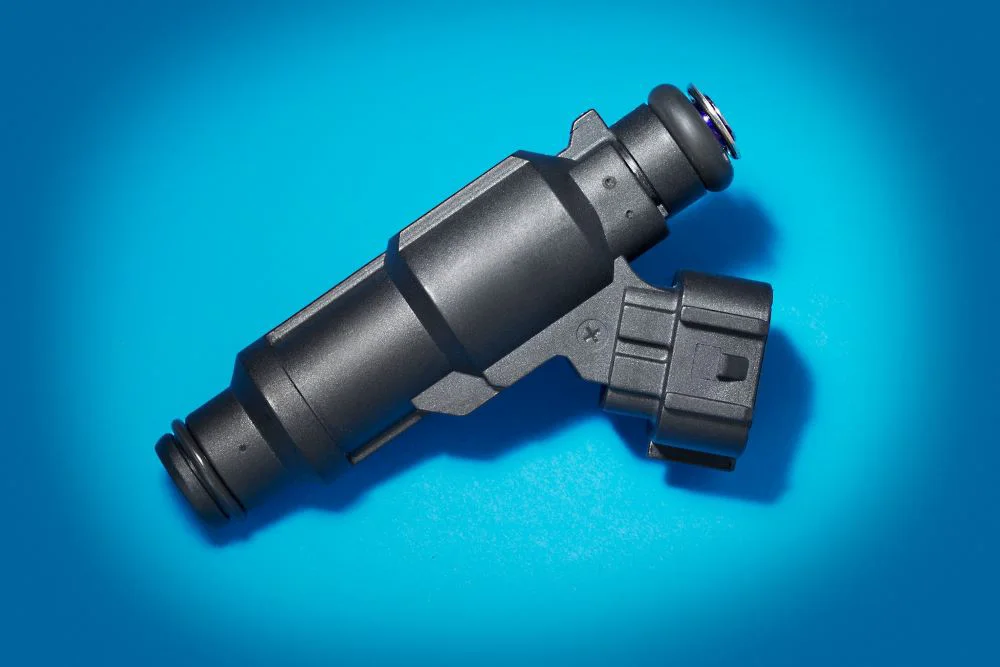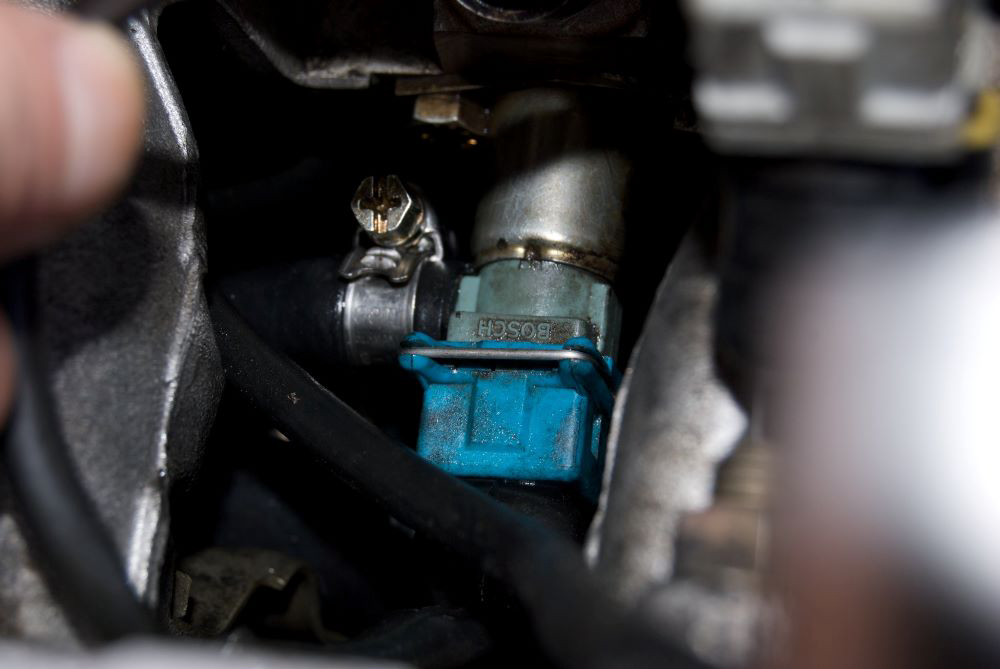- What Causes A P0174 Code?
- How To Diagnose And Repair?
- Symptoms Of A P0174 Code
- Common Fixes For The P0174 Code
- How To Prevent Future Problems
- Is It Safe To Drive?
- Difference Between OBD-II And OBD-I
- Should You Replace Or Rebuild Components
- Can Aftermarket Parts Help Fix The Problem
- Tips For Maintaining Proper Fuel System
What Causes a P0174 Code in a Chevy?
A P0174 code in a Chevy is an indication of a lean fuel condition. This means that the air-fuel ratio in the engine is too high, meaning there is too much air and not enough fuel. This can be caused by several different issues, including a vacuum leak, faulty oxygen sensor, or clogged fuel injectors. This is similar to the P0171 code in a Toyota.
It can also be caused by an incorrect idle speed setting or a malfunctioning mass airflow sensor. In some cases, it may even be due to an issue with the engine’s computer system itself. Regardless of the cause, it should be addressed as soon as possible to prevent further damage to the engine and ensure optimal performance.
How to Diagnose and Repair a P0174 Code in a Chevy?
Diagnosing and repairing a P0174 code in a Chevy can be a daunting task. However, with the right knowledge and tools, it is possible to diagnose and repair this issue. This is also quite similar to the P0171 code in Chevy Cruze vehicles.
- The first step in diagnosing and repairing a P0174 code is to identify the cause of the problem. This code indicates that there is an imbalance between the air/fuel ratio on one or more cylinders. Common causes of this issue include vacuum leaks, fuel injector problems, faulty oxygen sensors, or an incorrect fuel pressure regulator setting.
- Once you have identified the cause of the problem, you can begin to repair it. If there are any vacuum leaks present in your vehicle’s intake system, they should be repaired as soon as possible using appropriate sealants or gaskets. If your fuel injectors are malfunctioning or clogged up with debris, they should be cleaned or replaced accordingly.
- Additionally, if your oxygen sensors are not functioning properly they should also be replaced with new ones that meet OEM specifications for your vehicle’s make and model year. Finally, if necessary you may need to adjust your fuel pressure regulator setting according to manufacturer specifications for optimal performance from your engine’s air/fuel mixture system.
- After all repairs have been completed successfully it is important to reset any diagnostic trouble codes (DTC) stored in memory by disconnecting both battery cables for at least 10 minutes before reconnecting them again so that all systems can reset properly before starting up again normally.
Common Symptoms of a P0174 Code in a Chevy?
A P0174 code in a Chevy is an indication of a lean fuel condition (aka the engine is running lean). This means that the air-fuel ratio is too high, meaning there is too much air and not enough fuel. Common symptoms associated with this code include:
1. Poor engine performance: The vehicle may experience reduced power, and hesitation when accelerating, or stalling.
2. Reduced fuel economy: The vehicle may consume more fuel than usual due to the inefficient combustion process caused by the lean air-fuel ratio.
3. Illuminated Check Engine Light: The Check Engine Light will be illuminated on the dashboard when this code is present to alert the driver of a potential issue with their vehicle’s engine system.
4. Rough idle: The engine may shake or vibrate at idle due to an imbalance in the air-fuel mixture caused by the lean condition detected by this code
What are the Most Common Fixes for the P0174 Code in a Chevy?
The P0174 code is a common diagnostic trouble code (DTC) that indicates an issue with the fuel system in a Chevy vehicle. This code typically indicates that the air-fuel mixture is too lean, meaning there is not enough fuel being delivered to the engine. To fix this issue, it is important to identify and address any underlying causes.
Common fixes for the P0174 code in a Chevy include:
1. Checking and replacing faulty oxygen sensors: Oxygen sensors measure how much oxygen is present in the exhaust system and send signals to the engine control unit (ECU). If these sensors are faulty or malfunctioning, they can cause an incorrect air-fuel ratio which can lead to a P0174 code. It’s important to check all of your vehicle’s oxygen sensors and replace any that are not functioning properly.
2. Replacing or cleaning dirty mass airflow sensor: The mass airflow sensor measures how much air enters your engine’s intake manifold and sends signals to your ECU so it can adjust fuel delivery accordingly. If this sensor becomes dirty or clogged, it may cause an incorrect air-fuel ratio which can lead to a P0174 code. Cleaning or replacing this sensor may help resolve this issue.
3. Inspecting vacuum hoses for leaks: Vacuum hoses carry intake manifold vacuum from one component of your vehicle’s engine system to another component such as the brake booster or EGR valve (exhaust gas recirculation valve). If these hoses become cracked, torn, disconnected, or have other types of leaks they may cause an incorrect air-fuel ratio which could trigger a P0174 code on your Chevy vehicle’s computer system. It’s important to inspect all of these hoses for any signs of damage and replace them if necessary.
4. Checking fuel pressure: Low fuel pressure can also cause an incorrect air-fuel mixture which could trigger a P0174 DTC on your Chevy vehicle’s computer system. It’s important to check your vehicle’s fuel pressure using a special gauge tool designed specifically for this purpose. If you find that there is low pressure, then you should consider replacing any faulty components such as injectors, pumps, filters, etc., that could be causing this problem.
How to Prevent Future Occurrences of the P0174 Code in Your Chevy?
To prevent future occurrences of the P0174 code in your Chevy, it is important to take a few proactive steps. First, ensure that all maintenance and repairs are done according to the manufacturer’s specifications. This includes changing the oil and filter regularly, checking spark plugs and wires for wear or damage, inspecting hoses for leaks or cracks, and replacing air filters as needed.
Additionally, make sure that all fuel system components are functioning properly by testing fuel pressure and inspecting fuel injectors for clogs or other issues. Finally, check the oxygen sensor regularly to ensure it is working correctly. Following these steps can help reduce the likelihood of future P0174 codes in your Chevy.
Is it Safe to Drive with the P0174 Code Present on Your Chevy?
It is not recommended to drive with the P0174 code present on your Chevy. This code indicates that there is an issue with the air-fuel mixture in your vehicle, which can cause a decrease in engine performance and fuel economy. Additionally, it can lead to further damage if left unchecked. It is best to have a professional mechanic diagnose and repair the issue as soon as possible.
What is the Difference Between an OBD-II and an OBD-I System
The difference between an OBD-II and OBD-I system when it comes to diagnosing and repairing the P0174 code on your Chevy is significant. The OBD-II system is a more advanced diagnostic tool that can provide more detailed information about the issue than the older OBD-I system.
- The P0174 code indicates a lean fuel condition, which means that there is too much air about fuel in the engine’s cylinders. With an OBD-II system, technicians can use specialized software to read live data from sensors and actuators to pinpoint exactly what is causing the lean condition. This allows for a more accurate diagnosis of the problem and helps technicians determine what repairs need to be made to fix it.
- In contrast, an OBD-I system does not have this capability; instead, it relies on generic codes that are not as specific as those provided by an OBD-II system. As such, diagnosing and repairing a P0174 code with an OBD-I system requires more guesswork on behalf of technicians since they cannot access live data from sensors or actuators. This makes it difficult for them to accurately diagnose and repair the issue without further testing or trial and error methods.
Overall, while both systems can be used for diagnosing and repairing a P0174 code on your Chevy, using an ODB II provides greater accuracy due to its ability to access live data from sensors or actuators which allows for better pinpointing of issues compared with using only generic codes provided by an ODBII system.
Should You Replace or Rebuild Components When Dealing With The P0174 Error
When dealing with the P0174 error on your Chevrolet vehicle, it is important to consider whether you should replace or rebuild components. The decision will depend on the severity of the issue and the cost of repair.
If the problem is minor, such as a faulty oxygen sensor or a clogged air filter, then replacing these components may be sufficient to resolve the issue. However, if there are more serious issues such as a damaged fuel injector or an engine misfire, then rebuilding these components may be necessary to restore proper operation.
In some cases, it may be more cost-effective to replace rather than rebuild certain components. For example, if you have an older model vehicle with worn-out spark plugs or ignition coils that need replacing, buying new parts can often save money compared to rebuilding them.
Ultimately, when deciding whether to replace or rebuild components when dealing with a P0174 error on your Chevrolet vehicle it is important to consider both the severity of the issue and cost of repair before making a decision.
Are There Any Aftermarket Parts That Can Help Fix The Problem
Yes, there are aftermarket parts available that can help fix the problem with the P174 error on a Chevrolet vehicle. The most common solution is to replace the mass airflow (MAF) sensor, which is responsible for measuring the amount of air entering the engine.
Additionally, replacing or cleaning any clogged fuel injectors may also help resolve this issue. Or, if you’re able to find the best fuel injector cleaner. It is important to note that these repairs should only be attempted by a qualified mechanic as incorrect installation or repair could cause further damage to your vehicle.
What Are Some Tips For Maintaining Proper Fuel System
1. Ensure that the fuel filter is replaced regularly according to the manufacturer’s recommended schedule. A clogged or dirty fuel filter can cause a lean mixture, which can trigger a PO174 trouble code. The same can also happen if you have dirty fuel injectors.
2. Check for any vacuum leaks in the intake manifold and replace any faulty hoses or gaskets as needed. Vacuum leaks can also cause a lean mixture and lead to a PO174 trouble code being triggered.
3. Make sure that all of the spark plugs are in good condition and are replaced when necessary, as worn-out spark plugs can also lead to an engine misfire and trigger a PO174 trouble code on your Chevrolet vehicle’s check engine light.
4. Have your vehicle’s oxygen sensors checked regularly for proper operation, as faulty oxygen sensors can also cause an incorrect air-fuel ratio which may result in triggering the PO174 trouble code on your Chevrolet vehicle’s check engine light system.
5. Have your vehicle serviced regularly by qualified technicians who will be able to inspect all components of the fuel system for proper operation and make any necessary repairs or adjustments if needed in order to avoid getting a check engine light with the trouble codes of P0174 on your Chevrolet vehicle.


